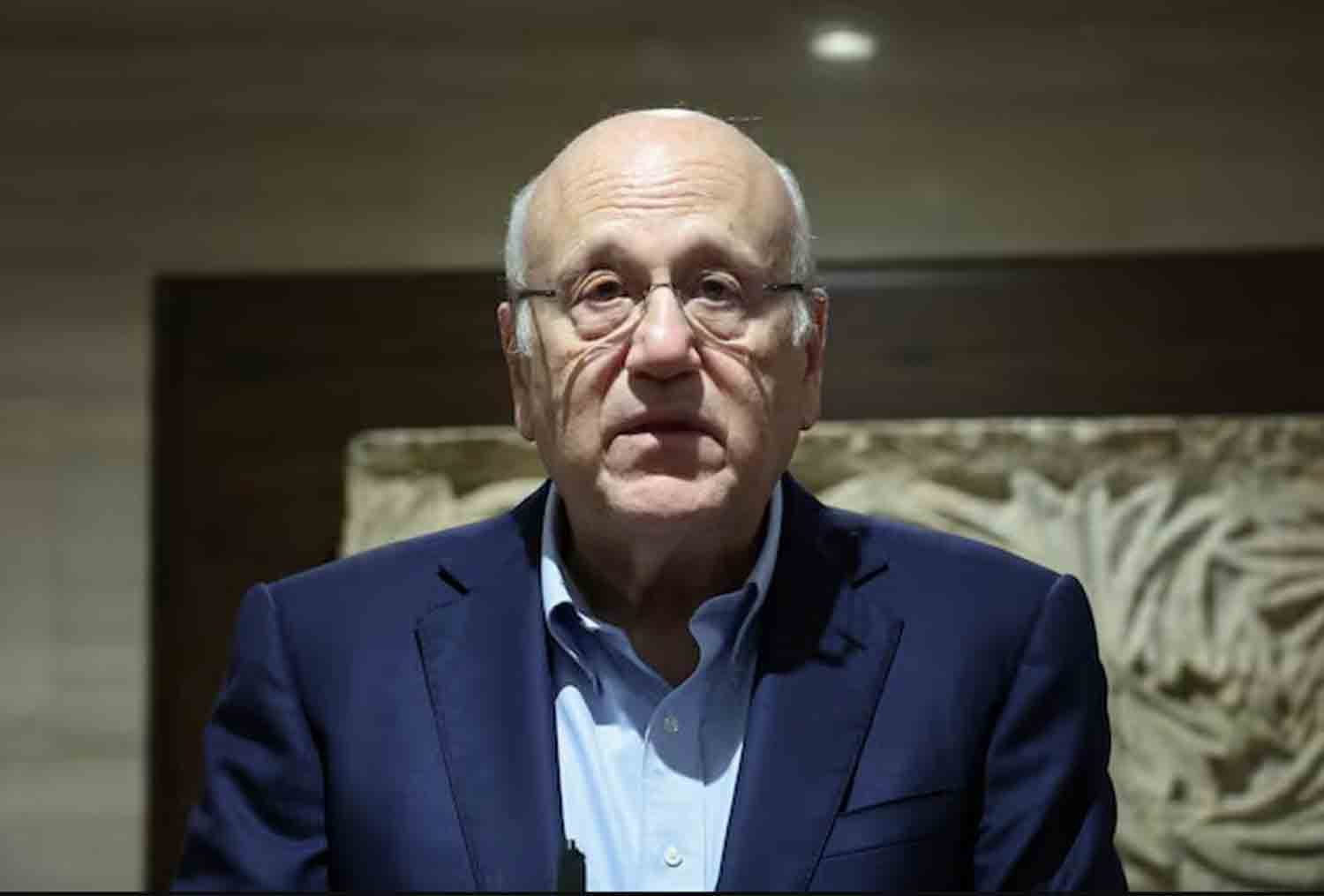Lebanon’s Prime Minister expressed optimism on Wednesday regarding the potential announcement of a ceasefire agreement with Israel within a few days. This comes as Israel’s public broadcaster reported the existence of a draft agreement that outlines a preliminary 60-day truce.
According to the broadcaster Kan, the document, which it claims was leaked and drafted by Washington, stipulates that Israel would withdraw its military forces from Lebanon during the first week of the ceasefire period. This information is consistent with earlier reports from Reuters, which cited two sources familiar with the negotiations.
Caretaker Prime Minister Najib Mikati initially doubted the feasibility of a deal until after the U.S. presidential election on Tuesday. However, following a conversation on Wednesday with U.S. Middle East envoy Amos Hochstein, who is scheduled to visit Israel on Thursday, Mikati’s outlook shifted. “Hochstein indicated during our discussion that an agreement could be reached before the end of the month and prior to November 5th,” Mikati shared with Lebanon’s Al Jadeed television.
Mikati stated, “We are making every effort possible and should maintain hope that a ceasefire will be achieved in the coming hours or days.” The draft shared by Kan was dated Saturday. When asked for a comment, White House national security spokesperson Sean Savett remarked, “Numerous reports and drafts are in circulation. They do not accurately represent the current status of negotiations.” However, Savett did not address whether the version released by Kan could serve as a foundation for further discussions.
According to the Israeli network, the draft was presented to Israel’s leadership, but Israeli officials did not provide an immediate response. For the past year, Israel and the Lebanese militant group Hezbollah have been engaged in conflict, coinciding with Israel’s military actions in Gaza, following Hezbollah’s attacks on Israeli targets in support of Hamas. The situation in Lebanon has significantly intensified over the last five weeks, with the Lebanese health ministry reporting that most of the 2,800 fatalities over the past year occurred during this period. Hezbollah has not yet commented on the leaked ceasefire proposal.
Earlier on Wednesday, Naim Qassem, the newly appointed leader of Hezbollah, indicated that the Iran-backed group would consider a ceasefire under specific conditions if Israel was willing to halt the conflict. However, he noted that Israel had not yet accepted any proposals for discussion. This marked Qassem’s inaugural address as secretary-general, following Hezbollah’s announcement of his election after the assassination of the group’s long-standing leader, Hassan Nasrallah.
ISRAEL TARGETS ANCIENT CITY
On Wednesday, Israel’s military operations against the heavily armed Hezbollah in Lebanon intensified, with significant airstrikes launched on the historic city of Baalbek, renowned for its Roman temples, as well as surrounding villages, according to security sources reported by Reuters.
In the wake of an Israeli evacuation alert, tens of thousands of Lebanese, many of whom had sought refuge in Baalbek from other regions, began to flee. Bilal Raad, the regional head of the Lebanese civil defense, described the situation as chaotic, stating, “The entire city is in a state of panic, trying to determine where to go, and there is a massive traffic jam,” prior to the airstrikes.
Lebanon’s health ministry reported that 19 individuals lost their lives due to Israeli strikes on two towns in the Baalbek vicinity on Wednesday. Since the onset of Israel’s military campaign in Lebanon in October 2023, the ministry has indicated that 2,822 people have been killed, with over 1.2 million displaced.
Following the airstrikes, the Israeli military announced that it had targeted Hezbollah fuel storage facilities in the Bekaa Valley. In response to inquiries regarding the bombardment of Baalbek, the U.S. State Department reiterated its support for Israel’s right to strike legitimate Hezbollah targets in Lebanon, while emphasizing the need to avoid endangering civilians, critical infrastructure, and significant cultural heritage sites.
For the third consecutive day, Hezbollah reported fierce clashes with Israeli forces in or around the southern town of Khiyam, marking the deepest incursion by Israeli troops into Lebanon since the escalation of hostilities five weeks ago. Additionally, Hezbollah claimed to have launched missiles at a military camp located southeast of Tel Aviv.
PLAN FOR PERMANENT CEASEFIRE
The White House announced that U.S. security official Brett McGurk, accompanied by Hochstein, will visit Israel on Thursday. A U.S. representative indicated that their discussions would cover various topics, including Gaza, Lebanon, hostages, Iran, and broader regional issues.
The Lebanese prime minister refrained from commenting on the draft proposal released by the Israeli media, which suggested a permanent ceasefire to commence after an initial 60-day period, contingent upon the implementation of United Nations resolutions 1701 and 1559.
Mikati stated that Lebanon is prepared to fully adhere to resolution 1701, enacted in 2006, which mandated the demilitarization of southern Lebanon and the establishment of a U.N. peacekeeping force in the region.
Earlier this month, Hochstein remarked to reporters in Beirut that improved enforcement mechanisms are necessary, as neither Israel nor Lebanon has fully complied with the 18-year-old resolution. The leaked draft from Wednesday proposed the creation of an independent international body to oversee the ceasefire.
Resolution 1559, adopted in 2004, called for the disbandment and disarmament of all militias in Lebanon. The initiative for a ceasefire in Lebanon coincides with ongoing diplomatic efforts to halt hostilities in Gaza.
Discover more from Defence Talks | Defense News Hub, Military Updates, Security Insights
Subscribe to get the latest posts sent to your email.





